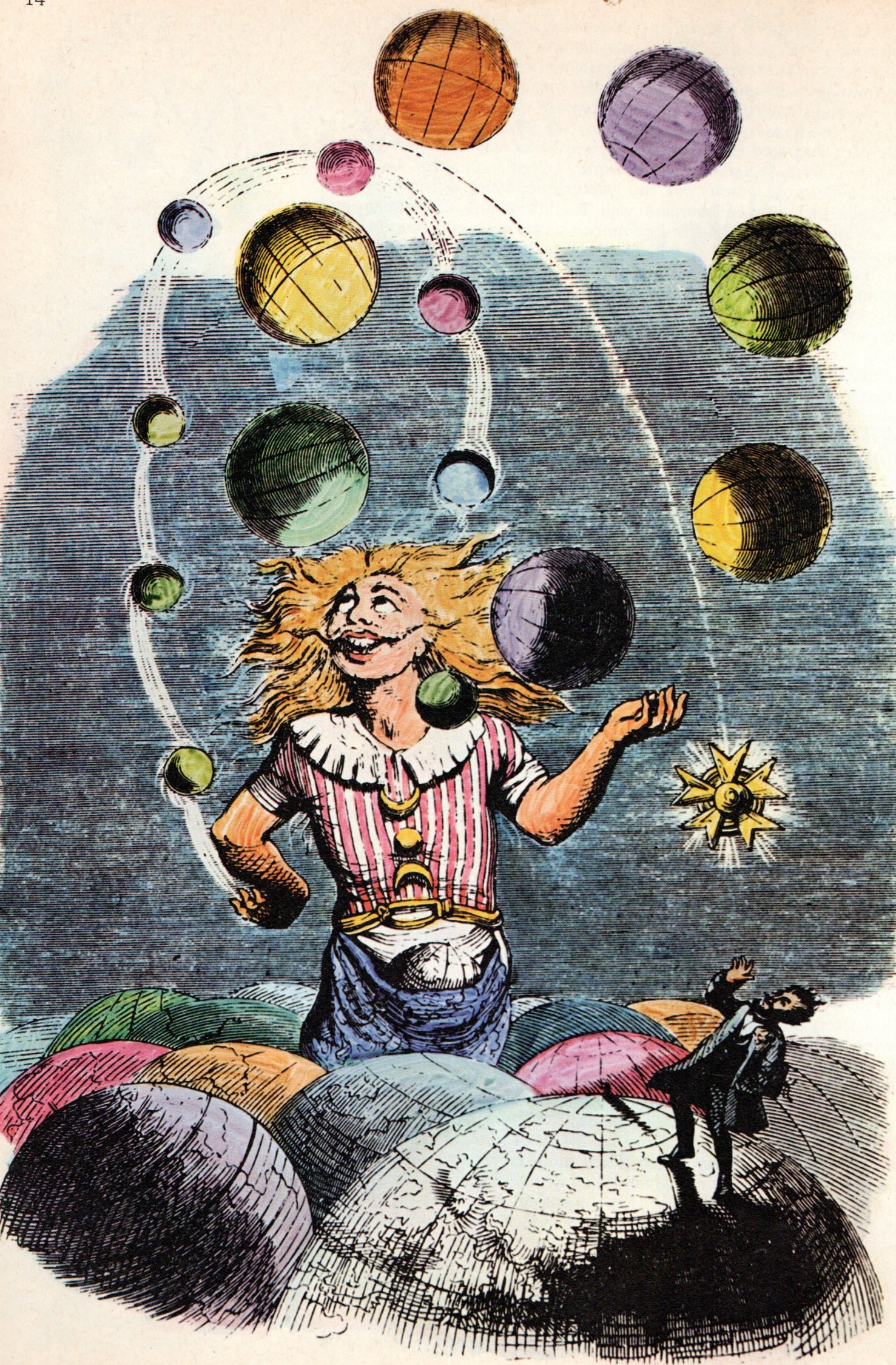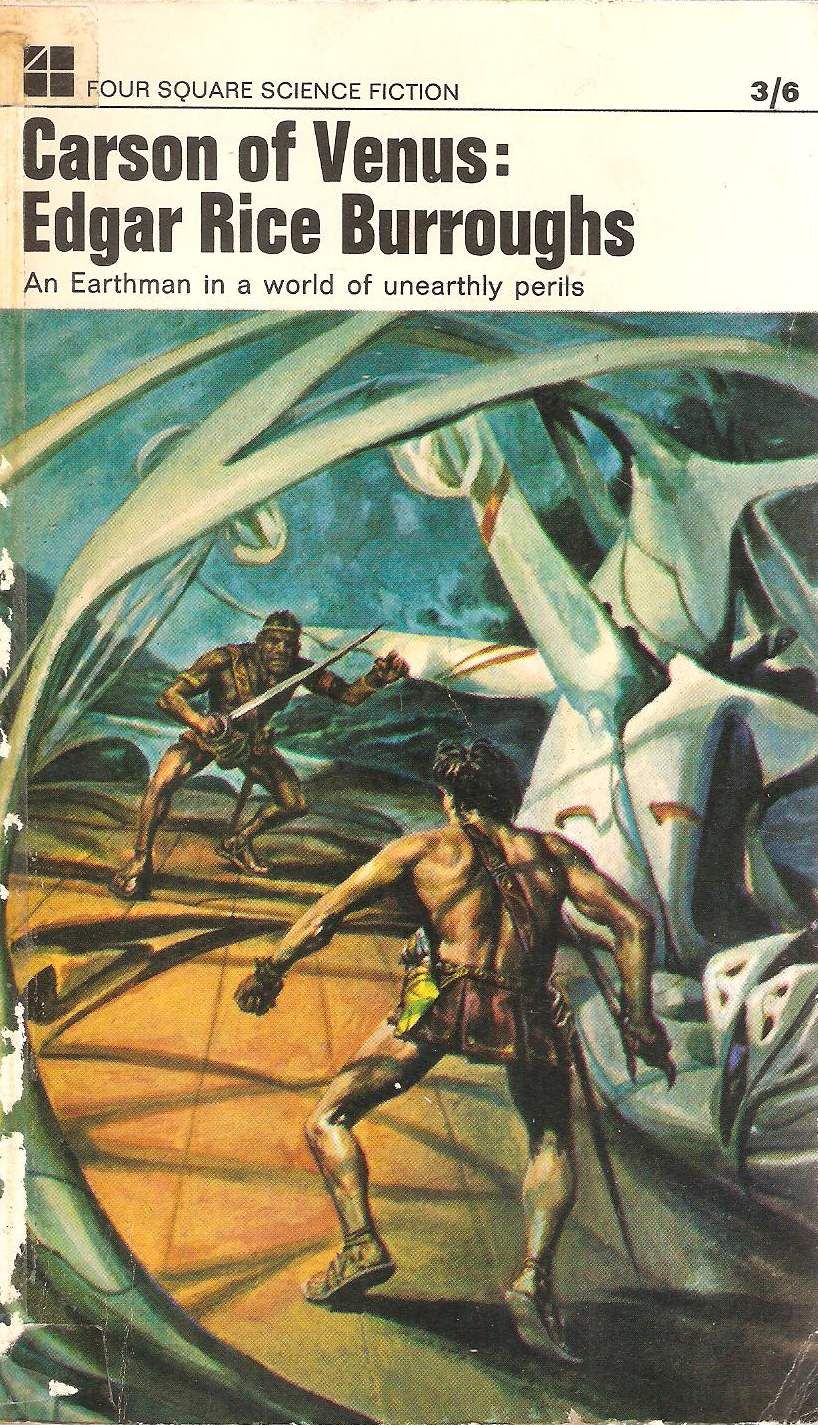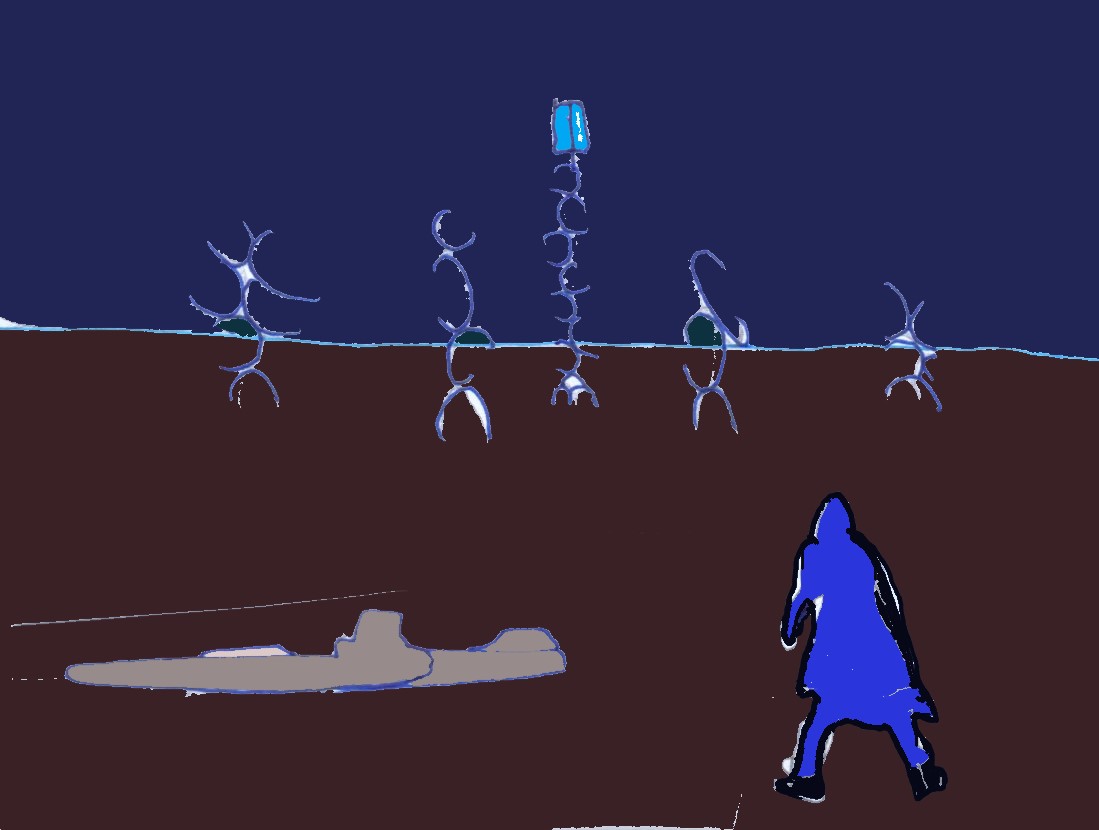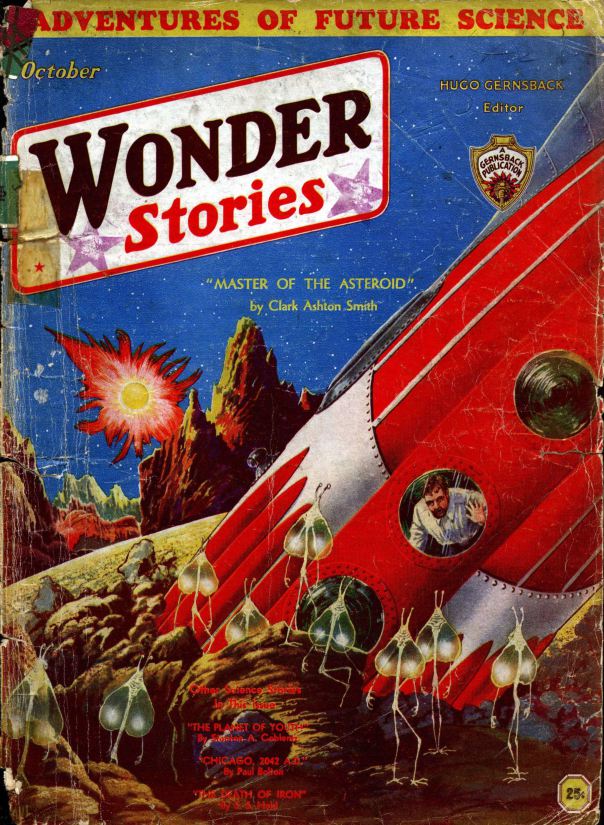jasoomian gathol
a swirl of ideas
from zendexor's
native land

INTRODUCTION 27th January 2024
For years, this page has been lurking in my mental pipeline. At first I assumed I'd have to begin a new website altogether in order to pursue my ideas about Britain-in-the-imagination, but lately I've realized that it can fit very well into the web of themes here on www.solarsystemheritage. An island nation on Jasoom - why not?
Though not as mighty as Helium-USA, nevertheless Gathol-Britain still has its own aura, and in order to fill this page a variety of mental processes can be lifted from one sort of appreciation (history and heritage) to another (the sf literary imagination).
Before we go on: you must have noted that the above image includes another land to the west of Britain. That raises a point which needs to be made double-quick.
I would be appalled, I'd blush for shame, if anyone whom I respected were to draw the conclusion, from anything I say or write, that my fervent patriotism entails a belief in British superiority. So averse am I from being so childish, that in some ways I am much harder on my own people than I am on foreigners. The greater the country, the more pitiful are those who fail to live up to its potential or its heritage. Britain's disastrous record in relation to Ireland illustrates this starkly. What an opportunity lost! Our two islands could have been friends and allies for a millennium, banded together against attempts at subjugation by continental powers. Instead of which... well, history is the sad answer to that.
Nor do I go to the opposite extreme and claim that the Irish are better than the British. The oppressed can become the oppressors almost overnight; think of the 1863 draft riots in New York, in which the Irish working class took the lead in targeting negroes. (And it goes on: the word "negro" itself is now disrespected as "racist" despite the implied insult to the civil rights heroes of the 1960s who used it to denote their own people.)
Forget the moral league-table! The greatness of a country is, rather, an aesthetic issue, and patriotism a form of role-play wherein we each act our part in the particular saga to which we have been allotted by circumstance. It's win-win for lovers of epic.
Think of the world as a picture-gallery full of unique masterpieces, amongst which it's pointless to choose the "best". Where morality does come in, is that it is good to cherish the pictures.
That is my stance: proud of my country insofar as it is my role to be proud; just as (for example) a Frenchman ought to be proud of France and is not much good for anything if he isn't.
(Actually, descended as I am from a Belgian grandmother, I'm a Belgian patriot too.)
PANNING FOR TIME-SLIPPED GOLD 28th January 2024
Stid: But look here, Zendexor, given history's appalling record of sheer badness, what's the point of this role-play you talk about? How can you excuse patriotism's focus on saga, without getting yourself besmirched by the taint of power? Sagas are deeply into power and state action, after all.
Zendexor: Yes, I know: "battles and dates and all that rot" as young Digory Kirke says in C S Lewis' The Magician's Nephew, while flying over the pristine Narnia and rejoicing that it is a new-born, history-free world.
Still, don't we accept, in some contexts, that you have to pan through a lot of mud in order to get at the gold?
Stid:
That sounds too glib to me. If the mud of history yields a bit of gold
now and then, so what? It's still a lot of muck for most people to
have to live through. And the gold is mostly retrospective anyway:
golden or romantic ages whose lustre is visible only with hindsight.
The stuff of nostalgia for those who come after, by which time it's too late for the sufferers.
Zendexor: Well, here we come to the strange truth. History, as it proceeds its woeful way, is busily exuding something I shall call Substance Nu.
Stid: Neologism-time again, I see. So tell me what recondite intellectual recipe goes into Nu. Something that justifies the wisdom of hindsight, I guess.
Zendexor: The "Nu" is short for "Nu then, better watch out, don't be too hasty or you'll miss the main point." And the point is (as you guessed, Stid) mostly retrospective.
But that is fair enough because it's necessarily a late stage in the phenomena in question. A delayed-action efflorescence of a historical period's true value.
And before you say it, I'll admit that it can spring from markedly minority things. Consider the prophets of the Hebrews, or the philosophers of the Greeks - they dominate our ideas of their cultures, yet most of their people probably never met them, heard them speak, or even perhaps heard of them.
Nevertheless, unsuspected by the majority, they were sweating out Substance Nu to put the sheen of importance on their time.
TO STIR THE JELLY WITH A DIPSTICK 4th February 2024
Have you ever noticed the strange phenomenon called not being interested in history? Weird, wouldn't you say, Stid? How so many people manage it, I really don't know. To say "I'm not interested in history" is tantamount to saying, "I'm not interested in life".
Stid: But a lot of it is horrible life, isn't it? A mountain of the depressing "crimes, follies and misfortunes of mankind". From the contents of the previous section I can guess how you're going to deal with this point, Zendexor. You're going to point out that the horror is all overlaid with the glamour of Substance Nu -
Zendexor: I've now given it an element-name, Nurium, though you won't find it on the periodic table.
Stid: Very well: "Nurium". The retrospective aura of the colourful past. One might dismiss it as tinsel splendour, but I know you won't. You'll use it to justify your disingenuous amazement that anyone could be so blind as to be uninterested in history; how, you will ask, could anyone fail to be enchanted by its glow? But now it's time to tell you, Zendexor, that your task won't be over until you have dealt with another aspect of the matter. Glow or no glow, the past, quite reasonably, can be, and is, seen as FIXED. What are you going to do about that? In the popular mind, don't you see, the fixedness of the past naturally leads to it being considered as set in some kind of jelly of lifelessness. That's the mental mood you have to cure. Not a rigid philosophical argument, maybe, but certainly a mental mood which decants a flow of negative themes in the sequence "past - unchangeable - jellified - lifeless - boring".
Zendexor: That's the trap, certainly. I absolutely agree. I'm going to suggest that there's a strong and a weak version of it; and I shall deal with each in turn.
The strong-jelly-trap is philosophical and psychological. I have to tackle it head-on by asserting that the "jelly" is an illusion, insofar as it never existed. Every moment of history is present to those who are living in it, and just as full of vibrant contingency, of might-not-have-been-ness, as our own present moment is. If you think seriously about past events at all, you must take as much account of that "vibrancy of their presentness" as of any other fact amoung the details you are considering.
The weak jelly-trap is more practical: it is that people are so constrained by their conditions of life, that it can be hard not to see the story of a nation (for instance) as running in grooves of necessity. Not absolute necessity maybe, but overall enough to make it rather hard to avoid a certain jellification, shall we say... In these circumstances one might get to wish for a dipstick with which to try to stir the vat of jelly, to see what its maximum "give" might be...
Now let me tell you that the student of British history, up to modern times, has providentially been furnished with just such a dipstick!
It's a historical phenomenon by which a sequence of human beings have been placed in a situation where they were permitted and indeed tempted to strain at the boundaries of what was possible, thus stirring and testing the consistency of the jelly.
I refer, for the period up to 1603, to the Crowns of England and Scotland, and after that for another two hundred years to the Crown of Britain.
Many of these monarchs had an outstanding gift for badness, but so what? What would have rendered them useless as indicators of the limits of authority, is if they had been nonentities; and, to my knowledge, none of them were.
They wanted things, and, placed advantageously as they were, and using the unique resources of their position, they did their best with energy and passion to get what they wanted; and the story of their selfish strivings shows us what could and could not be done.
Invaluable probes of the malleability, elasticity and ductility of their milieux!
Stid: Pains in the neck for those around them, though.
Zendexor: Often true. But that's a separate issue. One conundrum at a time, now!
ANNIVERSARIES ARE THE RHYMES OF HISTORY 28th February 2024
Still on the topic of "How to be cured of the weird syndrome of being uninterested in history", let's deal with a subset of the malady, namely, that of being bored with / overwhelmed by / daunted by the business of remembering dates. (Remember Digory's "battles and dates and all that rot".)
Dates are numbers, and yes we're faced with a lot of them. That's undeniable. But, fortunately, they can rhyme!
In a roughly 2000-year span of recorded history, a wealth of resonances of this sort has accumulated mightily. To give an example: one such date-rhyme of which I am quite fond is that formed by the years 1509 and 1909.
Think: "1509 - the 17-year-old Henry VIII comes to the throne of England, bringing great hopes with him." And then: "1909: Lloyd George's Peoples' Budget."
Stid: Are you comparing the hopes roused by the latter with the hopes roused by the former?
Zendexor: I suppose one could, though the thematic connection is fanciful. It's the juxtaposition that is effective.
Stid: How, though? If the value in meaning is so tenuous - what's the point?
Zendexor: You might as well say, what's the point of any sound-rhyme in poetry. Take this renowned Miltonic couplet:
...But that two-handed engine at the door
Stands ready to smite once, and smite no more.
What's
the connection in meaning between "door" and "more"? None. One is a
noun, the other an adverb. You see? The connection is purely one of
sound. A sort of echo. Logically meaningless, if you put it that way,
and yet somehow a meaning is created by juxtaposition alone, the final
syllable in each line echoing in doom-laden repetition. (The secret of
how that works is probably indescribable and un-learnable - which is why
we're not all successful poets.)
To sum up: just as rhymes can help make lines unforgettable, by means of pure sound, divorced from other meaning, so date-anniversaries can help make historical dates unforgettable, purely by means of digital repetition in the numbers, divorced from other meaning.
Near-anniversaries can be used too. Think of Apollo 11 being 1,999 years after the Battle of Actium. (It would have been 2,000 years if there had been a Year Zero.)
Stid: Not a very British anniversary, that last one. Give us some more Brit-date-rhymes.
Zendexor: (Modest cough.) I was born in 1954, exactly 1,000 years after the year which saw the end of Eric Bloodaxe's rule in York and the beginning of the more-or-less continuously unified English state. Now, Stid, before you point out that I'm not all that important, let me suggest that the real point is, so much has happened for so long a stretch of time, that we can identify this sort of stuff as an enhancement of our personal awareness. We're all part of history after all. Still, if you want more purely public references, here goes:
1314 - Battle of Bannockburn. 1614 - the Addled Parliament. 1914 - World War. A nice series of 300-year intervals!
Or for a specially Scottish one you could juxtapose 1314 - Bannockburn with 2014 - 'independence' referendum.
Now for a neat millennium gap: 1016 - Cnut conquers England. 2016 - Brexit de-conquers the UK!
Another such 1,000-year gap: 878 - Alfred beats the Danes and treats with Guthrum; 1878 - Disraeli returns from his big triumph at the Congress of Berlin.
Later this century we're due to start on 2,000-year anniversaries, e.g. 2043 will be two millennia since Claudius' invasion; 2061 will be two millennia since Boudicca's revolt...
The culture layer lies thick around here; might as well use it as a mnemonic!
MISSING THE PAY-OFF 11th March 2024
Remember the great old 1948 classic film The Treasure of the Sierra Madre? Now, forget its message about the futility of greed for gold, because I intend to use "prospecting" as a symbol for my own purposes which are quite different; and since the analogy-framer is boss...
Stid: Hold on, Zendexor! I don't feel inclined to give you carte blanche on this. After all we all know cases in which the analogy-framer hasn't thought it through and ends up having the analogy effectively used against him.
Zendexor: But it's all right if one is up-front at the very beginning on the way one is limiting the analogy. In this particular variation I now declare that I am using "gold" as a symbol for something worthy to count as a treasure. Got it? "Gold", in the following spiel, means "something great and worthwhile".
Having established that, let me go on to say that the protagonist in my little tale is not going to be any one individual, no Bogart or Huston character seeking wealth in the arid mountains. Instead my subject is a person called Elpoep, which is People spelt backwards to signify a bit of dopiness. Elpoep has spent a couple of hard millennia in a struggle for survival and well-being. During almost all that time, the treasure has been largely unobtainable, not (like the metallic kind of gold) because the whereabouts of its ore is as yet undiscovered, but rather because it has taken a long time to form.
Finally, though, the great age dawns! The time of fulfilment! Due to the welfare state, mass education, mass communications and the resulting spread of widely available resources for historical memory, the Treasure - an appreciation of the national story, retro-shone to illuminate the dark and evil past and convert it into positive saga so as to invite us all to belong - the Treasure shimmers into full reality!
And now what? One might expect poor old Elpoep to breathe a sigh of relief and say, "Here it is at last: after all these weary centuries I've found the treasure and I can enjoy it!"
However, most unfortunately, it turns out that Elpoep's mind, having buckled under the strain of it all, has become confused to such a degree that the reward which has been so long in formation no longer seems desirable to him/her. He/she pushes the treasure away and will have none of it.
Elpoep is now in the grip of a mental illness called wokery, which renders the sufferer incapable of appreciating a real saga.
Admittedly,
wokery provides a sense of belonging, of a sort - but only via a Year
Zero trashing of everything that has gone before. It's like the young
who find solace and meaning in joining gangs. They could find all the
meaning they need via a role in their nation's story, but that would
entail knowing something. And so, the jackpot is abandoned. It's like
throwing away your lottery ticket just when your lucky number has come
up.
Stid: You don't think much of the young, do you, Zendexor?
Zendexor: I don't think much of anybody who lacks patriotism. No, that's not quite true. I'll put it this way: I would think more of those who don't have it, if they had it.
Some great people, it is true, lacked it - H G Wells had no time for it at all, as far as I can tell. But then Wells had his own positive ideas. When I think of today's dreary drug-abuse among the young, and of what they're missing, I think "if only they could come to their senses and climb aboard the saga that is there for the taking".
Of course, the patriotic theme can be perverted. What worthwhile thing is immune to
that? Should we all stop eating cheese because it sometimes goes off?










































